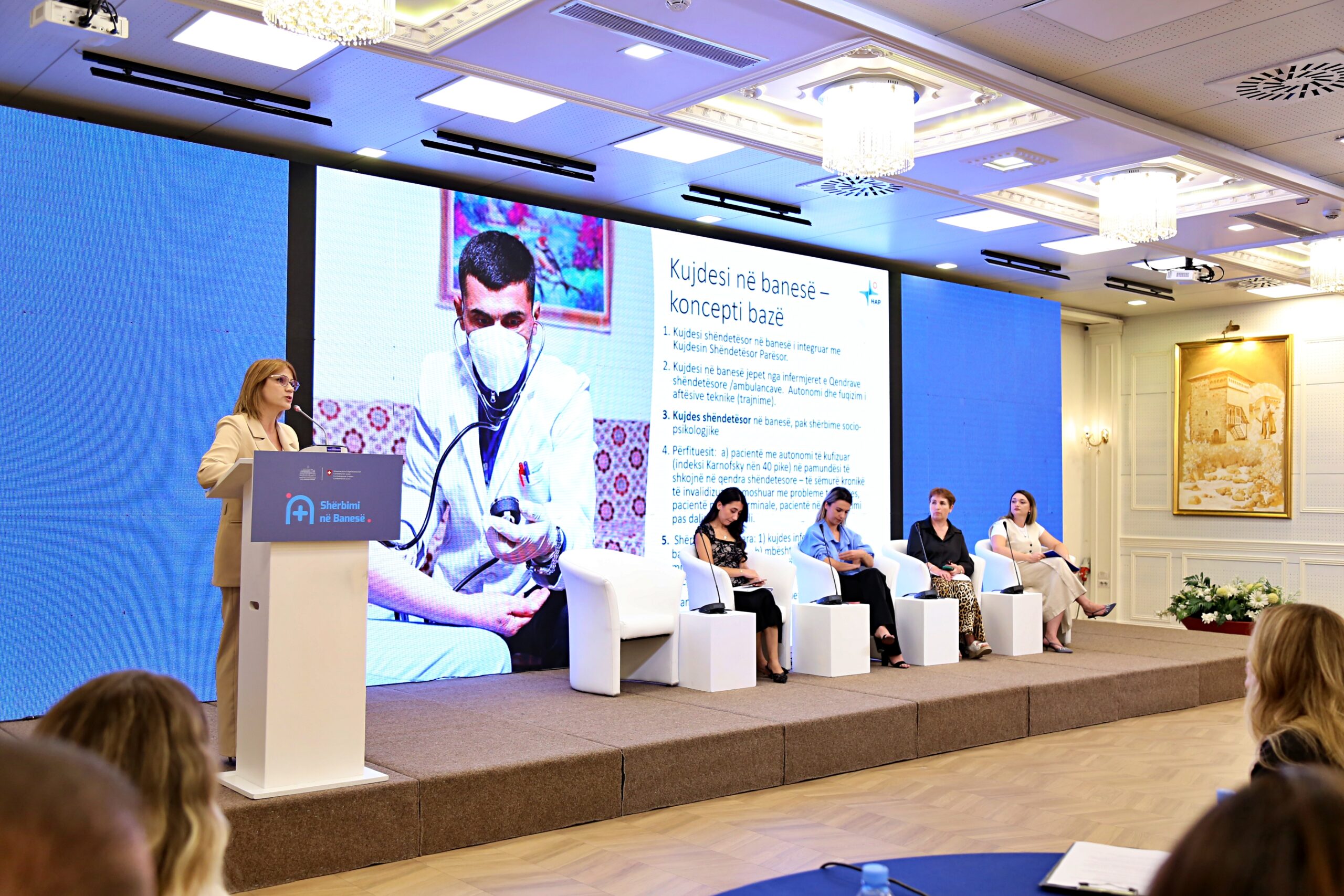
On July 25, 2025, the Health for All Project (HAP) joined the National Symposium “Expanding Home-Based Care in Albania through Primary Health Care Structures”, organised by the Ministry of Health and Social Protection in collaboration with the Embassy of Switzerland in Albania.
The symposium gathered high-level representatives, including Deputy Minister of Health and Social Protection Ms. Mira Rakacolli, and Swiss Ambassador to Albania HE Ruth Huber, alongside directors of Health Centres, regional operators representatives, health professionals, and civil society representatives. Patient testimonies, local-level experiences, and institutional perspectives were featured throughout the event.
As a Swiss Agency for Development and Cooperation (SDC) project and a long-standing contributor to strengthening Albania’s primary health care system, HAP presented its achievements and lessons learned from piloting and scaling up home-based care services since 2021.
Speaking at the symposium, Sajmira Adëraj, HAP’s representative, shared key findings on the home care implementation process and the service’s impact on patients and families, underlining both the results achieved and the challenges ahead.
Among its main achievements, HAP lists:
- Expanding home-based care to 120 Health Centres across 17 Local Health Units, with the goal of reaching 150 centres by 2026.
- Training over 1,000 nurses to deliver quality services at the community level.
- Reaching more than 4,840 patients and their families through 51,000 home visits in the project’s implementation areas.
Despite the progress, participants also acknowledged that home-based care in Albania remains fragile and not yet fully consolidated. Challenges include the lack of systematic and planned service delivery, shortages of medicines and consumables, and transport difficulties. Resistance among staff, limited involvement of doctors, and the need for continuous training of nurses were also identified as barriers. Furthermore, inconsistencies in patient visit reporting, limited additional funding and insufficient monitoring once project support is withdrawn were highlighted as obstacles to ensuring sustainability.
Discussions during the plenary session emphasised the importance of embedding home-based care into health policies and regulatory frameworks, mobilising additional resources, strengthening nurse continuing education, and ensuring systematic service monitoring. They also reaffirmed the importance of inter-institutional collaboration to ensure sustainable access to home-based care for all who need it.
HAP remains dedicated to working closely with the Ministry of Health and Social Protection to further strengthen integrated primary healthcare in Albania.

